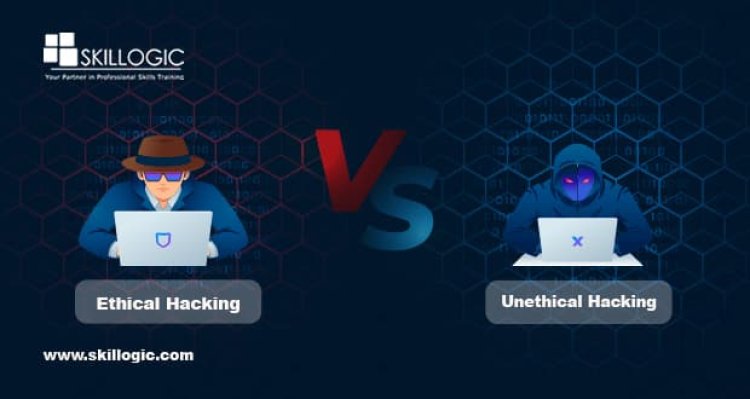What is the Disparity between Ethical and Unethical Hacking?

According to PwC research, 61% of technology executives expect a cyber-attack that entails the use of ransomware to increase in 2022.
How do data and messages leave the systems and phones? How safe is our personal information? Is it possible that the networks that surround us have been intentionally hacked and are in the hands of criminals?
Digital space is a completely different arena in today’s tech-savvy world. Exponentially large amounts of data are now being stored across computers and network systems. This massive amount of data is what fuels digital operations. A significant portion of stored data is sensitive and confidential, and businesses take great care to protect it. To develop a good defence against malicious attacks, systems are locked with passwords and other security procedures.
To Know The Cost to Learn Ethical Hacking in 2022?
What really is Hacking?
Hacking is an attempt to gain access to a computer system or a private network within a computer. It’s just gaining unauthorised access to or control of computer network security systems in order to commit a crime.
Watch this video: Biggest Cyber Attacks in the World
What is Ethical Hacking?
Hacking is done by companies to identify any potential dangers to a computer system or network. This sort of hacking entails the use of technological understanding as well as instruments similar to those used by unethical hackers. Ethical hacking, on the other hand, is circumventing the security system in order to get legitimate access to a company’s network. Companies are now recruiting cyber security professionals to bolster up their defence systems as the number of cyber-attacks in the country rises.
Professional hackers with competence in the field of cyber security who hack for government and official organisations are known as white hat hackers. They are certified hackers who assist IT firms in resolving their problems. White Hat Hackers use ethical hacking techniques in their work.
What is Unethical Hacking?
Black Hat Hackers are talented programmers who, like White Hat Hackers, are cybersecurity specialists but hack for malicious purposes. Such hackers gain illegal access to devices by infiltrating the system. Black Hat hackers are primarily illegal and work for personal benefit. The black hat hackers try to slither into and appropriate personal and sensitive information from people and businesses.
Grey Hat Hackers are a type of hacker who falls somewhere between White Hat and Black Hat. While White Hat Hackers work with the best of intentions and within the law, Black Hat Hackers work for the wrong reasons, and Grey Hat Hackers work for both good and bad reasons. Grey Hat Hackers are mostly interested in having fun and discovering security flaws in enterprises.
By 2022, the internet of things (IoT) is expected to have grown to 18 billion linked devices. As a result, fraudsters seeking access to secure digital systems now have a much larger number of potential access points.
What is a career like to be an Ethical Hacker?
Companies are willing to pay enormous sums of money to keep their data and systems secure as cyber criminals become more sophisticated in their attacks. So, if you enjoy technology and want to pursue a job that will benefit you in the future, enrolling in a cyber security degree is a wonderful choice. Jigsaw Academy, for example, offers a variety of short-term cyber security courses as well as other programmes in data sciences, machine learning, and artificial intelligence.
Certified Ethical Hacker (CEH) is a credential that people are earning these days in order to provide ethical hacking services to businesses. It’s a well-paying, respectable job option! SKILLOGIC Ethical Hacking Courses are of dual accreditation from EC-Council, CompTIA and IIFIS.
Watch this video: Ethical Hacking Course Introduction

0
13177